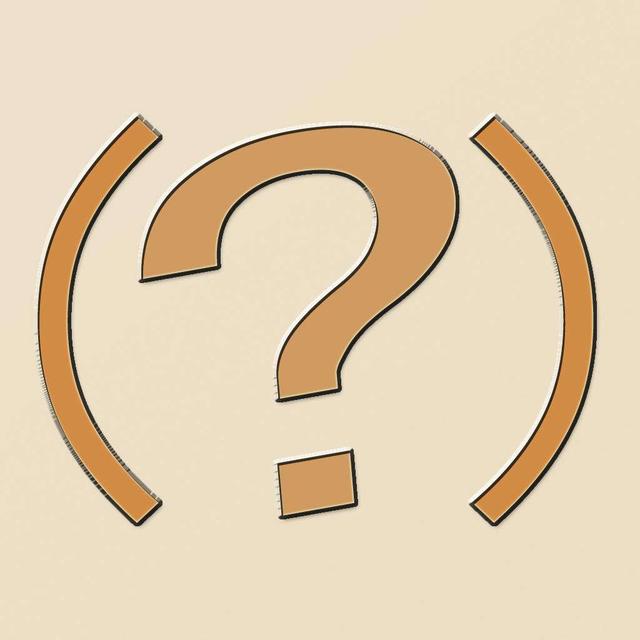高中英语人教版必修一unit1单词(新人教版高中英语选择性必修一Unit1)
首发公众号:广州英语辅导,关注广州英语辅导,获得更多优质资料~,今天小编就来说说关于高中英语人教版必修一unit1单词?下面更多详细答案一起来看看吧!

高中英语人教版必修一unit1单词
首发公众号:广州英语辅导,关注广州英语辅导,获得更多优质资料~
|
physiology |
n.生理学;生理机能 |
/ˌfɪziˈɒlədʒi/ |
|
artemisinin |
n.[药]青蒿素 |
/ɑːtɪmɪ'saɪnɪn/ |
|
crucial |
a.至关重要的;关键性的 |
/ˈkru:ʃl/ |
|
malaria |
n.疟疾 |
/məˈleəriə/ |
|
vital |
a.必不可少的;极其重要的 |
/ˈvaɪtl/ |
|
committed |
a.尽心尽力的;坚定的 |
/kəˈmɪtɪd/ |
|
commit |
vi.承诺;保证 vi.忠于 |
/kəˈmɪt/ |
|
commit oneself to do |
承诺;保证(做某事等) |
/kəˈmɪt wʌnˈself tə du/ |
|
academy |
n.(艺术文学等)研究院;学会 |
/əˈkædəmi/ |
|
academic |
a.学业的;学术的 |
/ˌækəˈdemɪk/ |
|
objective |
n.目标;目的 a.客观的 |
/əbˈdʒektɪv/ |
|
botanical |
a.植物学的 |
/bəˈtænɪkl/ |
|
evaluate |
vt.评价;评估 |
/ɪˈvæljueɪt/ |
|
property |
n.性质;特征;财产 |
/ˈprɒpəti/ |
|
distinct |
a.清晰的;清楚的;有区别的 |
/dɪˈstɪŋkt/ |
|
extract |
n.提取物;摘录 vt.提取 |
/ˈekstrækt/ |
|
wormwood |
n.蒿;洋艾 |
/ˈwɜːmwʊd/ |
|
boil |
v.使沸腾;煮开 n.沸点 |
/bɔɪl/ |
|
liquid |
n.液体 a.液体的;液态的 |
/ˈlɪkwɪd/ |
|
obtain |
vt.获得;赢得 vi.存在;流行 |
/əbˈteɪn/ |
|
acknowledge |
vt.承认(属实等);感谢 |
/əkˈnɒlɪdʒ/ |
|
defeat |
n.失败;挫败 vt.击败;战胜 |
/dɪˈfi:t/ |
|
analyse |
vt.分析 |
/ˈænəlaɪz/ |
|
apparently |
ad.显而易见;看来;显然 |
/əˈpærəntli/ |
|
substance |
n.物质;物品;事实根据 |
/ˈsʌbstəns/ |
|
insist |
v.坚持;坚决要求 |
/ɪnˈsɪst/ |
|
insist on |
坚决要求 |
/ɪnˈsɪst ɒn/ |
|
scientific |
a.科学(上)的;关于科学的 |
/ˌsaɪənˈtɪfɪk/ |
|
mostly |
ad.主要地;一般地 |
/ˈməʊstli/ |
|
wear and tear |
(正常使用造成的)磨损;损耗 |
/weə(r) ənd teə(r)/ |
|
conclusion |
n.结论;推论 |
/kənˈklu:ʒn/ |
|
penicillin |
n.青霉素;盘尼西林 |
/ˌpenɪˈsɪlɪn/ |
|
flee |
v.迅速离开;逃跑 |
/fli:/ |
|
circumstance |
n.条件;环境;状况 |
/ˈsɜ:kəmstəns/ |
|
novelist |
n.小说家 |
/ˈnɒvəlɪst/ |
|
novel |
n.(长篇)小说 |
/ˈnɒvl/ |
|
flow |
n.流;流动;流畅 vi.流;流动 |
/fləʊ/ |
|
chart |
n.图表 vt.记录;制订计划 |
/tʃɑ:t/ |
|
flow chart |
流程图 |
/fləʊ tʃɑ:t/ |
|
found |
vt.创建;建立;把…建立在 |
/faʊnd/ |
|
infer |
vt.推断;推定 |
/ɪnˈfɜ:(r)/ |
|
politician |
n.从政者;政治家;政客 |
/ˌpɒləˈtɪʃn/ |
|
numerous |
a.众多的;许多的 |
/ˈnju:mərəs/ |
|
theory |
n.理论;学说 |
/ˈθɪəri/ |
|
relativity |
n.相对论;相对性 |
/ˌreləˈtɪvəti/ |
|
formula |
n.公式;方程式;配方 |
/ˈfɔ:mjələ/ |
|
genius |
n.天才;天资;天赋 |
/ˈdʒi:niəs/ |
|
gentle |
a.温柔的;文静的 |
/ˈdʒentl/ |
|
patent |
n.专利;专利证书 a.有专利的 |
/ˈpætnt/ |
|
passion |
n.酷爱;激情 |
/ˈpæʃn/ |
|
doctorate |
n.博士学位 |
/ˈdɒktərət/ |
|
extraordinary |
a.不一般的;非凡的;想不到的 |
/ɪkˈstrɔ:dnri/ |
|
gradually |
ad.逐渐地;逐步地 |
/ˈgrædʒuəli/ |
|
photoelectric |
a.光电的 |
/ˌfəʊtəʊɪˈlektrɪk/ |
|
come to power |
(开始)掌权;上台 |
/kʌm tə ˈpaʊə(r)/ |
|
institution |
n.社会公共机构;制度;习俗 |
/ˌɪnstɪˈtju:ʃn/ |
|
institute |
n.(教育等)机构;机构建筑 |
/ˈɪnstɪtju:t/ |
|
consequence |
n.结果;后果 |
/ˈkɒnsɪkwəns/ |
|
take up a position |
担任;任职 |
/teɪk ʌp ə pəˈzɪʃn/ |
|
moustache |
n.上唇的胡子;髭 |
/məˈstɑ:ʃ/ |
|
peculiarity |
n.个性;特点;怪异的性质 |
/pɪˌkju:liˈærəti/ |
|
encounter |
vt.偶然碰到;遇到 n.邂逅 |
/ɪnˈkaʊntə(r)/ |
|
professor |
n.教授 |
/prəˈfesə(r)/ |
|
mourn |
v.哀悼;忧伤 |
/mɔ:n/ |
|
remarkable |
a.非凡的;显著的 |
/rɪˈmɑ:kəbl/ |
|
device |
n.方法;技巧;装置;仪器 |
/dɪˈvaɪs/ |
|
sum |
vi.总结;概括 n.金额;总数 |
/sʌm/ |
|
sum up |
总结;概括 |
/sʌm ʌp/ |
|
draft |
n.草稿;草案 vt.起草;草拟 |
/drɑ:ft/ |
|
Nobel Prize |
诺贝尔奖 |
/nəʊˈbel praɪz/ |
|
Alexander Fleming |
亚历山大·弗莱明 |
/ˌælɪgˈzændə ˈflɛmɪŋ/ |
|
Albert Einstein |
阿尔伯特·爱因斯坦 |
/ˈælbət 'aɪnˌstaɪn/ |
|
Hitler |
希特勒 |
/ˈhɪtlə/ |
|
Elon Musk |
埃隆·马斯克 | |
|
Florence Nightingale |
弗洛伦斯·南丁格尔 |
/'flɔ:rəns ˈnaɪtɪŋgeɪl/ |
|
SARS |
abbr.严重急性呼吸综合征 |
/sɑ:z/ |
|
Switzerland |
瑞士(国家名) |
/'swɪtsələnd/ |
|
Swiss |
a.瑞士的 n.瑞士人 |
/swɪs/ |
|
Isaac Newton |
艾萨克·牛顿 |
/ˈaizək ˈnju:tən/ |
|
Jewish |
a.犹太人的;犹太教的 |
/ˈdʒu:ɪʃ/ |
|
Princeton |
普林斯顿(美国城市) |
/'prɪnstən/ |
TU YOUYOU AWARDED NOBEL PRIZE
屠呦呦获诺贝尔奖
6 October 2015
2015年10月6日
This year’s Nobel Prize for Physiology or Medicine has been awarded to Tu Youyou (co-winner), whose research led to the discovery of artemisinin, a crucial new treatment for malaria. Artemisinin has saved hundreds of thousands of lives, and has led to improved health for millions of people. Over 200 million people around the world get malaria each year, and about 600, 000 die from it. Artemisinin has become a vital part of the treatment for malaria, and is thought to save 100, 000 lives a year in Africa alone.
今年的诺贝尔生理学或医学奖授予了屠呦呦(共同获奖者),她的研究促使了青蒿素的发现。这是一种至关重要的治疗疟疾的新疗法。青蒿素挽救了数十万人的生命,并改善了数百万人的健康状况。全世界每年有超过2亿人罹患疟疾,约60万人死于疟疾。青蒿素已成为治疗疟疾的重要组成部分,据认为仅在非洲一年就能挽救10万人的生命。
Tu Youyou, a committed and patient scientist, was born in Ningbo, China, on 30 December 1930, and graduated from Peking University Medical School in 1955. After she graduated, she worked at the China Academy of Traditional Chinese Medicine in Beijing. In 1967, the Chinese government formed a team of scientists with theobjective of discovering a new treatment for malaria, and Tu Youyou was among the first researchers chosen. In the beginning, Tu Youyou went to Hainan, where malaria was more common, to study malaria patients. In 1969, she became the head of the project in Beijing, and decided to review ancient Chinese medical texts to find traditional botanical treatments for the disease. Her team examined over 2, 000 old medical texts, and evaluated 280, 000 plants for their medicalproperties. From their research, they discovered and tested 380 distinct ancient Chinese medical treatments that showed promise in the fight against malaria.
屠呦呦是一位坚定而耐心的科学家,1930年12月30日出生于中国宁波,1955年毕业于北京大学医学院。毕业后,她在北京的中国中医研究院工作。1967年,中国政府组建了一支以探索治疗疟疾新方法为目的的科学家队伍,屠呦呦是其中首批入选的研究人员。在开始的时候,屠呦呦去了海南研究疟疾患者,在那里疟疾较为普遍。1969年,她成为北京项目的负责人,并决定复阅中国古代医药文献,寻找这种疾病的传统植物疗法。她的团队查阅了2000多本古老的医药文献,并对280 000种植物的药用价值进行了评估。在他们的研究中,他们发现并测试了380种不同的中国古代疗法,这些方法为抗击疟疾带来了希望。
One medical text from the fourth century suggested using the extract from sweet wormwood to treat a fever. Tu’s team tested a collection of dried wormwood leaves but found no effect. They then triedboiling fresh wormwood, and using the liquid obtained from this to treat malaria, but this did not work either. Their project got stuck. However, Tu Youyou would notacknowledge defeat. She analysed the medical texts again, and by chance, she found one sentence suggesting a different way to treat the wormwood. She concluded that boiling the sweet wormwood apparently destroyed its medical properties. Using a lower temperature to draw out the extract, she found asubstance that worked. After failing more than 190 times, the team finally succeeded in 1971. Tu Youyou and her team members even insisted on testing the medicine on themselves to make sure that it was safe. Later, the medicine was tested on malaria patients, most of whom recovered. This medicine,which was called artemisinin, soon became a standard treatment for malaria.
一本四世纪的医药文献推荐使用青蒿提取物来治疗发烧。屠呦呦的团队测试了一批干青蒿,但没有发现效果。然后,他们试着把新鲜的青蒿煮沸,并用从中提取的液体来治疗疟疾,但这也不起作用。他们的项目陷入了困境。然而,屠呦呦并不承认失败。她再次分析了一遍医药文献,偶然间,她发现了一句话,建议用另一种方法来处理青蒿。她得出结论,煮青蒿显然破坏了它的药用价值。她用较低的温度提取提取物,发现了一种有效的物质。在失败了190多次之后,这个团队终于在1971年成功了。屠呦呦和她的团队成员甚至坚持在自己身上测试药物,以确保它是安全的。后来,这种药物在疟疾患者身上进行了测试,大部分受试患者都康复了。这种被称为青蒿素的药物很快成为治疗疟疾的标准药物。
According to Tu Youyou, the discovery of artemisinin was a team effort. Upon hearing that she had been awarded the Nobel Prize, she said, “The honour is not just mine. There is a team behind me, and all the people of my country. This success proves the great value of traditional Chinese medicine. It is indeed an honour for China’s scientific research and Chinese medicine to be spread around the world.”
屠呦呦说,青蒿素的发现是一个团队努力的结果。当听到自己被授予诺贝尔奖时,她说:“这个荣誉不仅仅属于我。在我身后有一个团队,还有我的国家的全体人民。这一成功证明了中医的巨大价值。中国的科学研究和中医药走向世界,确实是一种荣誉。”
THE MAN WHO CHANGED OUR UNDERSTANDING OF THE UNIVERSE
改变了我们对宇宙认识的人
Albert Einstein, who is perhaps the greatest scientist in modern physics,is often considered one of the smartest men who ever lived. He made numerous contributions to the world, the most well-known being the general theory of relativity and the famous formula E=mc2. Einstein was not only a genius; he was a courageous and kind figure loved by many people.
阿尔伯特·爱因斯坦,也许是现代物理学中最伟大的科学家,通常被认为是有史以来最聪明的人之一。他对世界做出了许多贡献,其中最著名的是广义相对论和著名的公式E=mc2。爱因斯坦不仅是一个天才,还是一个勇敢而善良的人,受到许多人的喜爱。
This gentle genius was born in Germany on 14 March 1879. When he was 16, he tried to enter university in Switzerland, but failed due to his low scores in the general part of the entrance exam, despite obtaining exceptional scores in maths and physics. After studying for another year, he managed to pass the exam, entering university in 1896 and graduating in 1900.
这位文静的天才于1879年3月14日出生于德国。16岁时,他曾试图去瑞士上大学,尽管他在数学和物理方面取得了优异的成绩,但由于入学考试的综合部分分数较低,他未能如愿。经过又一年的学习,他通过了考试,1896年进入大学,并于1900年毕业。
After two years of looking for work as a teacher, Einstein took a job as a clerk in the Swiss patent office. While working there, out of a strong passion for knowledge, he continued to study, earning a doctorate in physics in 1905. That same year, which was later recorded as a miracle year in science, he published four extraordinary physics papers. Following this, he gradually became famous throughout the world as the new Isaac Newton. After four years, he was able to quit his job at the patent office and enter research full-time at a university. In 1922, he was awarded the 1921 Nobel Prize for Physics for his explanation of the photoelectric effect.
在找了两年的教师工作后,爱因斯坦在瑞士专利局找到了一份职员的工作。在此工作期间,出于对知识的强烈热情,他继续学习,并于1905年获得了物理学博士学位。同年,他发表了四篇杰出的物理学论文,这一年后来被誉为科学史上的奇迹之年。此后,他逐渐以新艾萨克·牛顿闻名于世。四年后,他辞去了专利局的工作,进入一所大学做全职研究。1922年,他因对光电效应的解释而被授予1921年诺贝尔物理学奖。
Circumstances changed in 1933, when Hitler came to power in Germany. Einstein, who was Jewish, found the doors of academic institutions closed to him. As a consequence, he had to flee Germany. After spending time in Europe, he finally took up a position as a researcher at the Institute for Advanced Study in Princeton, USA. Following that, he continued to make great achievements in physics and mathematics.
1933年,当希特勒在德国掌权时,情况发生了变化。爱因斯坦是犹太人,他发现学术机构的大门对他关闭了。因此,他不得不逃离德国。在欧洲待了一段时间后,他终于在美国普林斯顿高等研究院担任研究员一职。此后,他继续在物理和数学方面取得了巨大成就。
To the public, he was seen as a slightly odd-looking but kind and funny man. He had a thick moustache and long white hair, which sometimes stood on end as though he had just received an electric shock. Although he was a genius, he sometimes forgot things, like his friends’ birthdays. But despite his peculiarities, he was loved by his friends and neighbours. There is even a story about how he helped a little girl who knocked on his door and asked for help with her homework. In fact, Einstein often encountered people on the street who would stop him and ask him to help explain things. After many such occasions, he finally started saying, “Pardon me! Sorry! Always I am mistaken for Professor Einstein!”
在公众看来,他看似有点古怪,但很善良又有趣的人。他胡须浓密,有时白发挺立,就好像刚遭了电击。虽然他是个天才,但他有时会忘记一些事情,比如他朋友的生日。尽管他性格古怪,但他深受朋友和邻居的喜爱。甚至还有一个关于他如何帮助一个小女孩的故事:这个女孩敲了他的门,请求他帮她做家庭作业。事实上,爱因斯坦经常在街上遇到一些人,他们会拦住他,请他帮忙解释一些事情。经过多次这样的场合后,他终于开始说:“对不起!对不起!我总是被误认为是爱因斯坦教授!”
On 18 April 1955, it was reported that Einstein had passed away, and the whole world mourned the great loss of a brilliant scientist.
1955年4月18日,有报道说爱因斯坦去世了,全世界都为一位杰出科学家的逝世而哀悼。
,免责声明:本文仅代表文章作者的个人观点,与本站无关。其原创性、真实性以及文中陈述文字和内容未经本站证实,对本文以及其中全部或者部分内容文字的真实性、完整性和原创性本站不作任何保证或承诺,请读者仅作参考,并自行核实相关内容。文章投诉邮箱:anhduc.ph@yahoo.com






